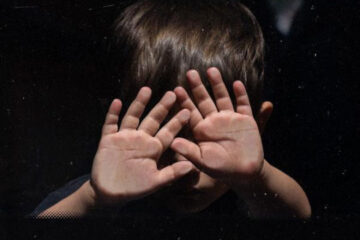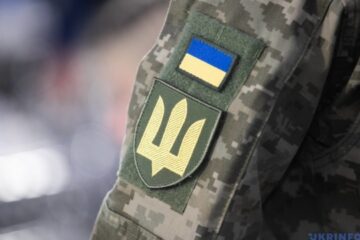The top priority challenges facing Ukraine’s museum sector are replenishing personnel numbers and securing adequate funding
Ukrainian cultural heritage should first be preserved and restored before making it popular to the world
The National Museum of the History of Ukraine in World War II has recently hosted a meeting between museum sector officials and Mykola Tochytsky, the Minister of Culture and Strategic Communications of Ukraine. The meeting addressed practical issues of importance for the activities of national museum institutions under martial law and outlined the development of joint measures to implement the goals set out by the 2030 Culture Development Strategy insofar as it relates to the preservation and protection of national cultural heritage.
Speaking to the meeting, Minister Tochytsky focused, in the first place, on the need to enforce compliance with the national legislation on the protection of culture monuments in national reserves, museums and scientific institutions. “We have never had a strategy for the development of the culture sector, funding has always been in short supply. But in order to make Ukrainian cultural heritage popular to the world, it should first be preserved and restored. And this is where efforts of mine and my team are focused now,” Mr. Tochytsky said in his opening remarks.
THE INTERNATIONAL FUND FOR THE PROTECTION OF UKRAINE’S CULTURAL HERITAGE WILL BE CREATED IN ROME ON JULY 10
Mykola Tochytsky emphasized that, according to an objective assessment of the status and problems of the museum sector, the sector is in critical need of increased funding, both from the national budget and philanthropic sources.
“That sector is notorious for the lowest salaries. So, the top priority measures to be taken by the Ministry of Culture and Strategic Communications (MCSC) include securing legislative updates focused on ensuring salary hikes for people working in the cultural sector and replenishing personnel numbers in this sector. For me personally, the top priority task as it pertains to legislation is to change the payroll situation in the culture sector. And this goal can only be achieved by making the society and the government change their perception of culture as such. Because when you start talking in terms of numbers with the legislators who are not ready to accept this, a problem immediately arises. There are only two options left: to look for money externally or to update the philanthropy legislation,” the minister said.
The Culture Ministry, Mr. Tochytsky continued, is continuing difficult conversations on philanthropy issues with relevant government institutions. In order to get the process started, the MCSC, for the first time in 30 years of independence, brought together culture ministers from partner countries into an International Support Coalition. The coalition meetings were held in Uzhhorod first and then in Warsaw, considering that Poland is currently holding the presidency over the Council of the European Union. During the Ukraine Recovery Conference 2025, scheduled to take place in Rome on July 10, 2025, a separate thematic panel will be held with the participation of the European Commissioner, the head of UNESCO and foreign culture ministers, dedicated to the role of culture in the development of human capital. At the Ukraine Recovery Conference 2025, Ukraine will unveil a concept of the Ukrainian Cultural Heritage Fund, which will fund projects for the restoration of cultural monuments and objects of culture damaged in the aftermath of Russia’s war in Ukraine.
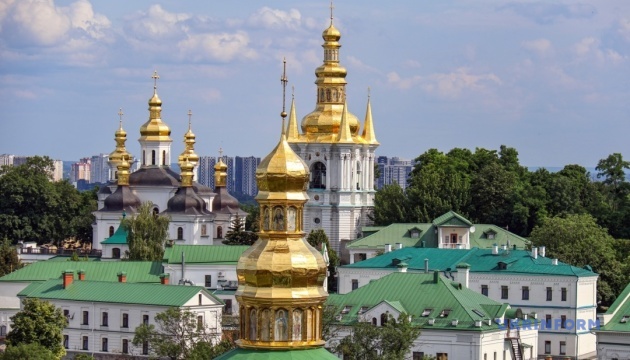
“WAS I RIGHT HAVING DONE SO? CERTAINLY YES!” TOCHYTSKY EXPLAINED THE REASONS WHY HE DISMISSED MAKSYM OSTAPENKO FROM HIS POSITION AS DIRECTOR GENERAL OF THE KYIV-PECHERSK LAVRA RESERVE
Speaking to the meeting with managing officials of national culture reserves, museums and scientific institutions, Mykola Tochytsky explained in detail the reasons behind his decision to dismiss Maksym Ostapenko from his position as the Director General of the Kyiv-Pechersk Lavra Reserve.
He explained that Mr. Ostapenko was among the two of the high-level sector officials the minister summoned in the first days after his appointment to the office of Culture Minister to set them tactical-level tasks that were to evolve into a strategy. Yuriy Savchuk, CEO of the National Museum of the History of Ukraine in World War II, attended the meeting alongside Mr. Ostapenko. The results of how the heads of the two national museum institutions perceived and fulfilled the tasks at hand can be seen from the fact that one of them was dismissed from his post, and the other institution will soon host a major event – the Congress of Local and Regional Government Officials under the auspices of the President of Ukraine.
“Our conversation was not easy and did not go particularly great, because everyone was defending their own plans and views. The tasks set for the head of the Lavra Reserve were developed based on an on-site audit and resulting report (containing over 140 pages) undertaken by the MCSC working group that audited the Lavra museum complex. The audit revealed inadequacies that required immediate attention and action, particularly to develop project documentation, get hundreds of objects registered with technical inventory authorities, and refurbish the premises with dripping ceiling, causing water to leak onto heads of employees and visitors. We demanded that they at least rectify the deficiencies identified in the audit report,” explained Mykola Tochytsky.
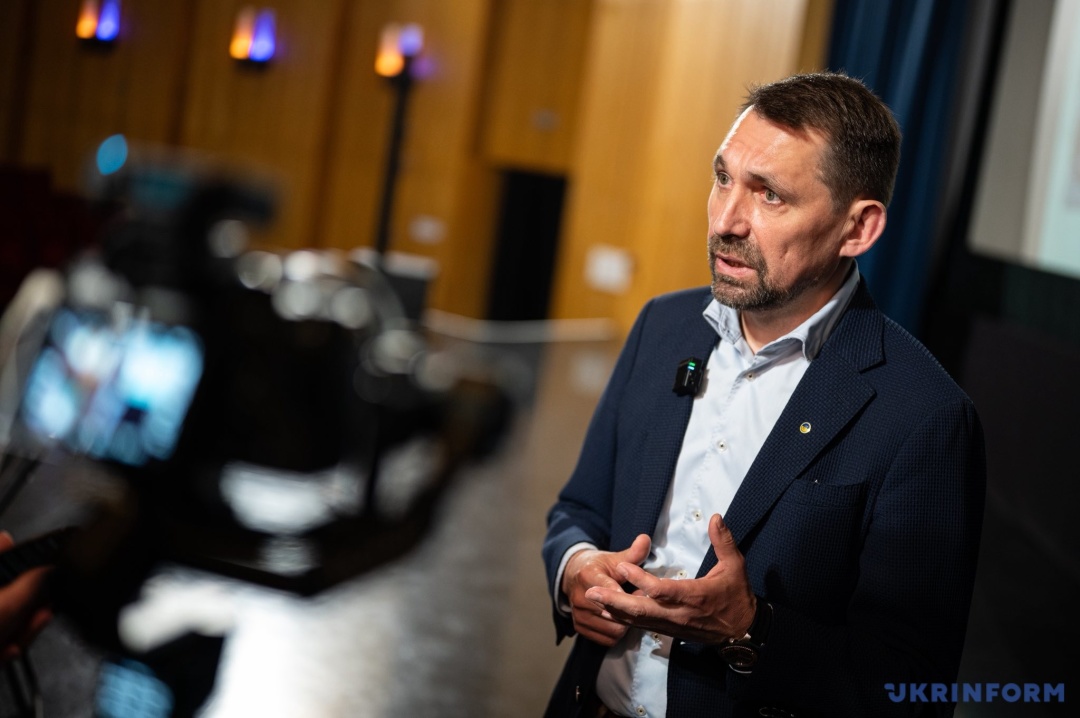
Mykola Tochytsky
DURING BUDGET PLANNING FOR EACH FISCAL YEAR THE MINISTRY OF FINANCE INVARIABLY COMES WITH FIGURES OF UNIMPLEMENTED ALLOCATIONS
To support his arguments, the Minister provided the following information: the total staffing of the Ministry of Culture and Strategic Communications of Ukraine consist of 300 positions, while the staffing table for the Kyiv-Pechersk Lavra comprises 504 positions. That said, however, Ministry of Culture and Strategic Communications employees had to supervise even the process of the Lavra Reserve changing inscriptions in the [Russian] language that should have been decolonized long ago. As for the budget and expenses, in 2023, the Lavra Reserve received budget allocations worth UAH 124 million, plus funding from own reserves, payroll allocations worth UAH 93 million, and UAH 30 million worth of utility expenses.
“In 2024, the Kyiv-Pechersk Lavra National Reserve received 248 million UAH in funding from the national budget. Moreover, the Reserve earned UAH 50 million worth of revenues last year. Couldn’t at least the most urgent works have been done with this money? In addition, if you look at the routes that any tourist – both Ukrainian and foreign – sees when buying a ticket to the Reserve, you will find that nothing has changed from 2021 to 2024.
I understand that there could have been a shortage of funds for specific restoration and repair projects. But could at least basic works, such as streamlining document flows, for example, have been done? There was enough money for that. And then, why not contact the Ministry, as other institutions do, which come, bring a contractor, and we act as payment guarantor? We had such instances, handled them, and the work had been carried out. After all, later, when the budget for the following fiscal year begins to be formulated, colleagues from the Ministry of Finance show us figures indicating the amounts of unspent allocations returned to government. And accordingly, we cannot claim that share of money. After all, everything has its limit. This is a brief answer to the question as to why I made this staffing decision or whether I had enough grounds to do so? – I was absolutely right doing so! I have no intention of being accountable for the people who fail to fulfill their job duties and employment contracts!”, the minister emphasized.
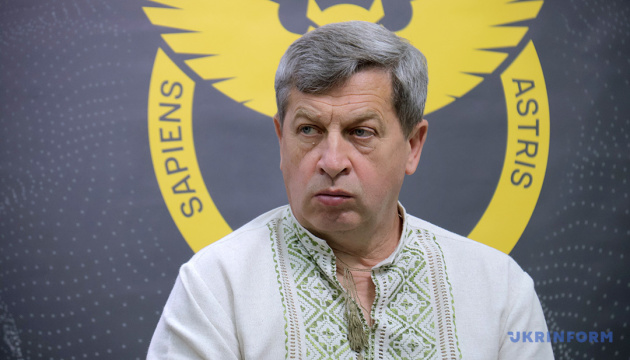
Yuriy Savchuk
In contrast, the Minister continued, Yuriy Savchuk, the Director General of the National Museum of the History of Ukraine in World War II, did a lot, acting within the limits of budget allocations and sponsored funding. “It is hard work that he has done. Indeed, everything was done not in a month, nor two or seven, but in years. But it was done in a systematic and appropriate way,” Mykola Tochytsky said.
PERSONNEL MANAGEMENT IS A VERY IMPORTANT ELEMENT OF ANY ACTIVITY
The Minister of Culture and Strategic Communications of Ukraine noted that personnel management is generally a very important element of any activity, and especially so in the museum sector. However, the problem of replenishing personnel numbers was, and still remains relevant, both in the light of tight budget environment and due to the war that has been raging for the fourth consecutive year now, given that lots of professionals have been mobilized for war or were forced to emigrate to other countries. The issue of funding personnel training programs for the cultural sector as well remains highly problematic. However, the MCSC, pursuing the objectives outlined in Ukraine’s National Strategy for Cultural Development, is already working on this issue in partnership with eleven countries. But some concerns remain in place, since there is no guarantee that employees, after completing training or internship programs abroad, will return to the institution that sent them for training. And this issue, Mykola Tochytsky believes, requires attention, consideration, and action for resolution.
“It is extremely urgent to regenerate our personnel reserve. But it will be difficult for us to get out of the situation now, given the limits set by the existing legal framework, which prohibits the conduct of job competitions during martial law. However, we can already start replenishing personnel numbers even now. That is, if you have deputies, colleagues, assistants who are capable of holding a higher position, I would be grateful if you sent me their candidacies for consideration for top managerial positions. We could discuss and make preliminary decisions at joint meetings until job competitions restart after the war is over. This is what I suggest,” the minister said, addressing the heads of national culture reserves, museums and scientific institutions under the MCSC jurisdiction.
IT IS CRITICAL TO FIND SENSES SUFFICIENT TO WIN OVER DECISION MAKERS ON FUNDING THE CULTURE SECTOR
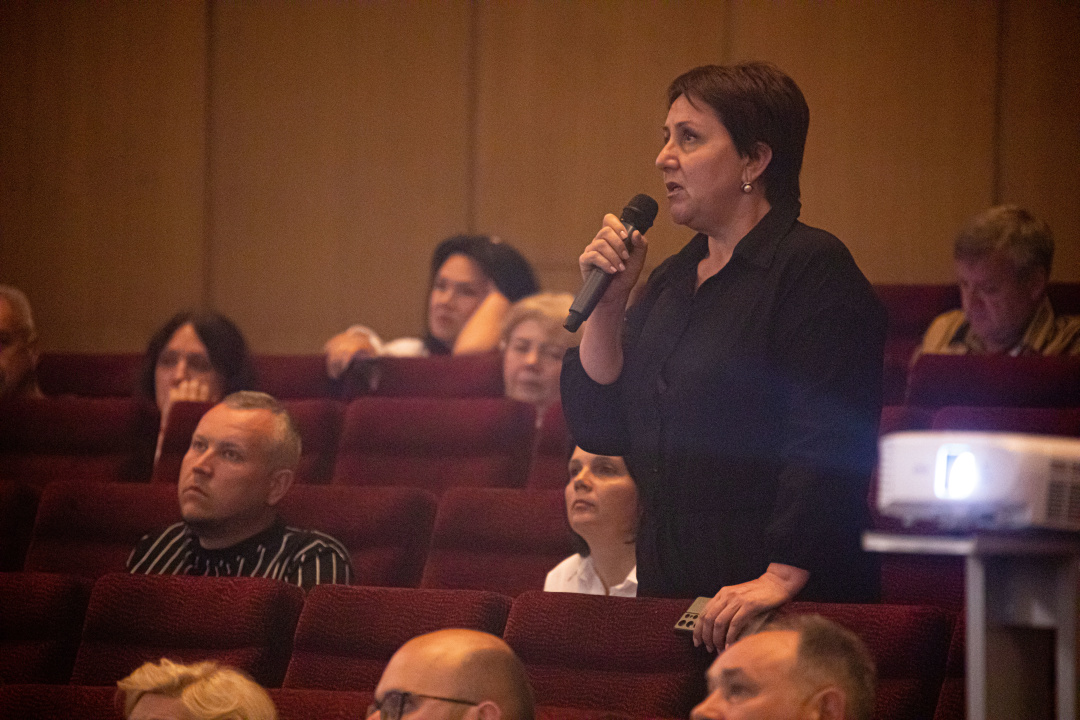
Natalia Rebrova, the head of the National Architectural and Historical Reserve “Ancient Chernihiv”, spoke to the Minister to emphasize that implementing any strategy for the preservation and restoration of cultural heritage takes understanding and unity. And unity gives a sense of justice.
“We who gathered here today represent a multiplicity of institutions holding national status that is not supported by anything. In particular, there are those institutions that have salary coefficient, while others don’t have such coefficients at all. And this issue has been urgent for very long years. Perhaps, when drawing up a strategy, it is worth paying attention to this, so that people feel and understand the fairness of the approach to ensuring compliance with the national status”, Ms. Rebrova suggested.
As an example, she said that while organizing work at Ancient Chernihiv — which comprises 26 cultural monuments of national importance, including five monuments that predate the Mongol conquest of Rus’ in the 13th century and represent the architectural styles and religious traditions of the pre-Mongol era — the museum cannot find a candidate for the position of lead architect, because the gross salary attached to this position is UAH 11,000. “Unfortunately, the lead architect position remains vacant as of today. Without resolving the issue of decent remuneration for employees, we will not be able to move forward,” the museum director emphasized.
Mykola Tochytsky replied to this: “I am aware of the fact that high-quality and decent remuneration is a must-have for this sector. But for the sake of fairness, I must say that employment contracts with heads of some individual institutions contain provisions saying that they themselves are empowered to calculate salaries for employees and for themselves in particular. Or they may not pay extra payments to salaries at times of tight budget constraints and not pay back even when money is available again, with the money saved on this being transferred back to the budget. Heads of individual institutions have to clear salary coefficients with the MCSC. As for the pay coefficients, this is the topic that starts our conversation with my deputies and department directors every morning. The draft directive is already ready, but now at this historical stage I cannot clear this decision with a particular government ministry. Regrettably, we often have to act within a paradigm that can be described by the words: everyone knows that the decision is bad, but no one knows that you had to choose between a bad and a very bad decision.
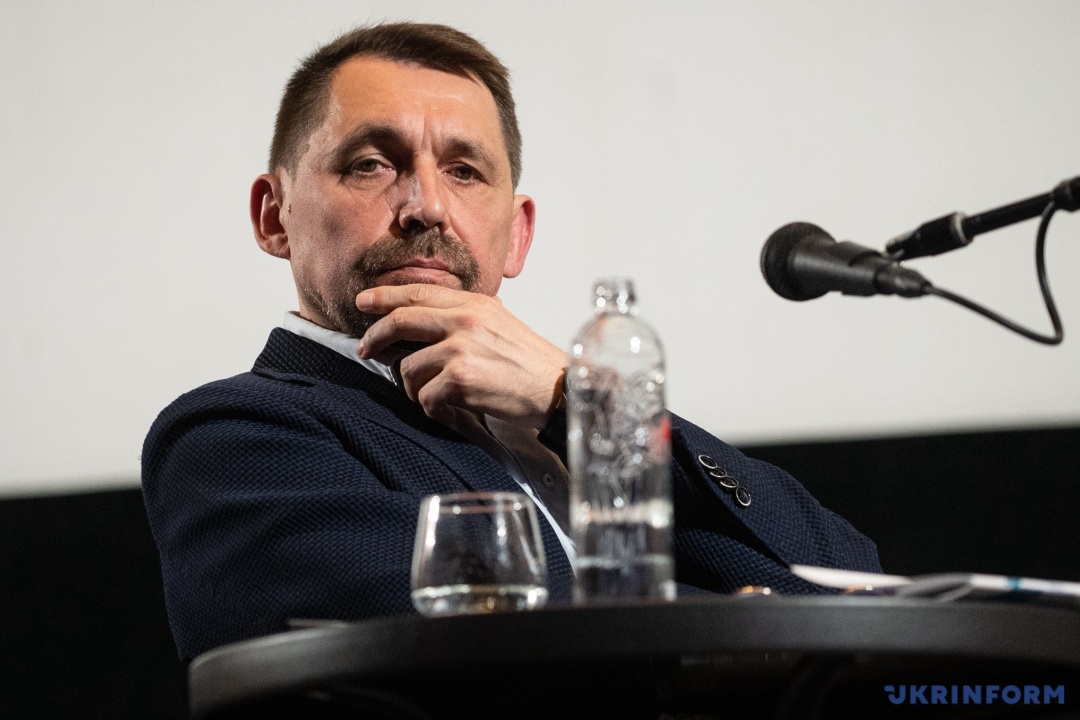
STRATEGY IS ISSUE NUMBER ONE, BUT FUNDING IS EVEN MORE OF IMPORTANCE THAN STRATEGY
The Minister of Culture and Strategic Communications underscored the fact that not everyone in Ukraine realizes the importance and role of culture in its life and in the life of every Ukrainian. And besides, culture is present in everything ranging from person-to-person communication up to production of high-precision weapons.
“The number one issue for us should be the Culture Development Strategy, but the issue of funding the cultural sector is of no less importance. And in order to achieve the perception of this sector as the one where employees need to be paid decent salaries, we have to find arguments and senses to win over people empowered to make decisions on expenditure allocation for the sector of culture. This process is complicated, but we in the Ministry of Culture do not stop convincing those who make such decisions. Hardly a day passes without clashes, primarily over salary hikes and the need to update the General Schedule”.

Iryna Moshyk
Iryna Moshyk, head of the Hlukhiv National Reserve, which — located just nine kilometers from Russia’s border – is under persistent bombardment, addressed Minister Tochytsky with the issue that has been bothering her for three years. This is about a 50 percent extra payment to salaries of the Reserve’s employees that should be made eligible to them for their status as employees of an organization located in armed conflict zone.
“I understand that money is in short supply, but this could have been foreseen a little earlier, and a little amount of attention could have been devoted to us. We continue working in extremely harsh conditions carrying out restoration projects, holding events, quests, and lessons of historical memory,” Ms. Moshyk noted. In response, Mykola Tochytsky promised to immediately address this issue and take requisite actions.
I WOULD LIKE TO HAVE A FEEDBACK ABOUT THE ISSUES AT HAND. FAILING THIS, THERE WILL BE NO MODIFICATIONS OR ALTERATIONS MADE
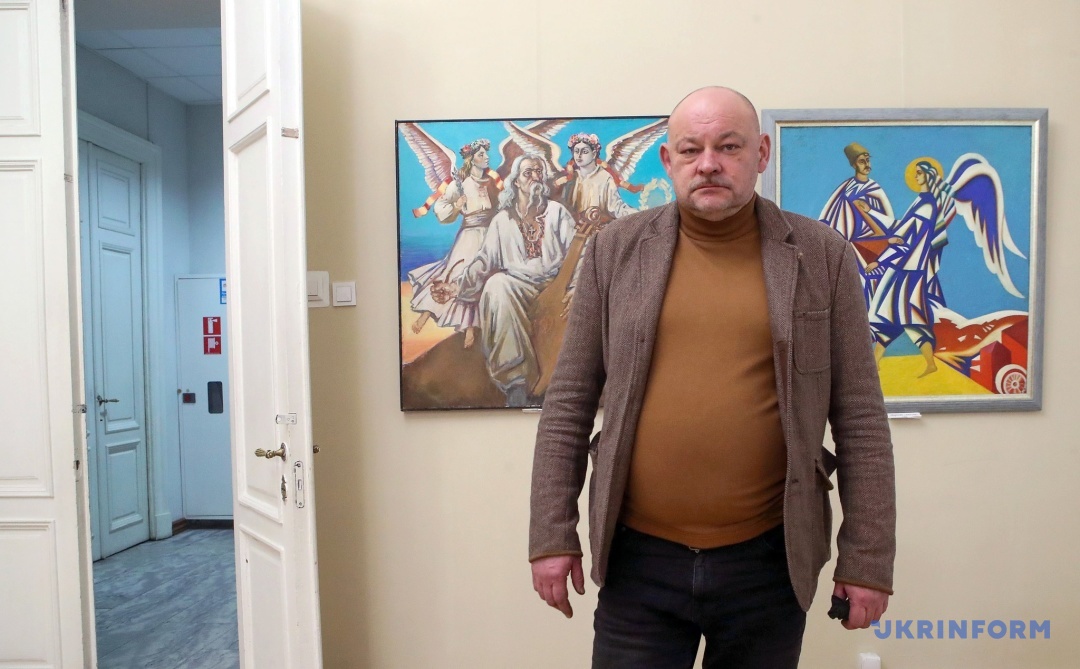
Dmytro Stus
Speaking at the meeting, Dmytro Stus, CEO at the Taras Shevchenko National Museum, expressed a general wish for more active dialogue between the MCSC and heads of museums and national reserves. “If there is a communication platform through which leaders of organizations can receive a response, even a negative one, but they will feel that they are listened to and heard, are given at least some attention, then there will be a desire to work together. Because when we meet no response, the desire to continue communication diminishes to the minimum,” he said.
Mykola Tochytsky replied that “It is a serious deficiency that is widespread and typical of only for this ministry,” and he, as a former diplomat, understands that an unanswered letter or SMS message would discourage a person from further engagement. He announced that he would create a dedicated email inbox for communication on museum-related topics and would read the messages personally.
Closing the event, the minister suggested that the heads of national reserves, museums, and scientific institutions present at the meeting schedule a new similar meeting in a month’s time to resume debates on the issues raised and check how they are being implemented in the system, what has been fixed and what still needs to be improved.
“I would prefer that you give your feedback immediately to enable me to push things forward, even by a little bit. I must have an understanding of what I am requesting funds for. I cannot invent what we need particular amounts of funding for. Because, in addition to the figures that reflect the extent of the damage and losses sustained by the sector of culture in Ukraine due to the ongoing war, I have to compile a competent professional portfolio. Or, for example, I am interested to know your opinion about the books, brochures, and guides that we publish. Is this really useful? Or is it better not to spend money because they are needed elsewhere? Therefore, we need your calls, letters, and messages, because you are scientists and professionals. Failing this, there will be no modifications or alterations made, but instead the old system that saw no changes during the past 30 years will persist in place while we need to build something new. And without your help and support, we are unlikely to do it,” Mykola Tochytsky emphasized, summing up the conversation.
Lyubov Baziv, Kyiv
Photo: Danylo Antonyuk and courtesy of the National Museum of the History of Ukraine in World War II
Source: Mykola Tochytsky, Minister of Culture and Strategic Communications



